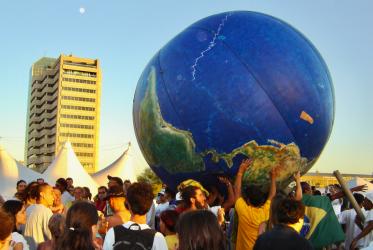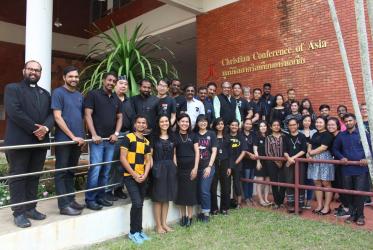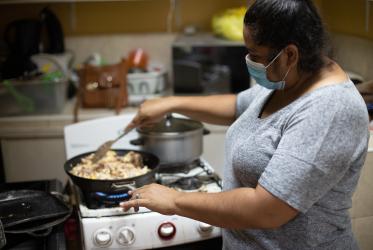Displaying 1 - 20 of 63
WCC Eco-School begins in Crete
15 November 2023
WCC Eco-School for Europe and North America region
11 - 18 November 2023
Orthodox Academy of Crete, Greece
Webinar: “Climate Justice, Food, and Faith”
09 November 2021
Scottish and UK religious leaders call for urgent climate action
20 September 2021
WCC Eco-School 2020 for Pacific region is further postponed
14 January 2021
WCC Eco-School 2021 for Pacific region on Water, Food and Climate Justice
22 - 28 February 2021
Eco-School promotes blue communities, green churches
19 November 2019
WCC Eco-School begins in Thailand
07 November 2019















